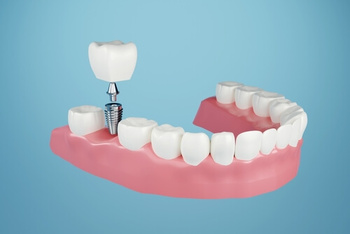When filling the gap left by missing teeth, it’s hard to beat the benefits of dental implants. They’ve become the go-to solution for anyone who values how their teeth function and their smile looks. Yet, one question often keeps people on the fence: “What’s the damage to my wallet?” In Australia, the answer isn’t always straightforward—costs can swing dramatically depending on various things.
In this guide, we will dig deep into everything you want about dental implant cost. We’ll unpack all the steps involved, from initial consultations to the procedure itself, and shed light on why the prices you encounter can range so widely. Plus, we’ll share some insider tips and advice for anyone thinking about taking the plunge into the world of dental implants. So, if you’re feeling a little lost in the financial maze of dental care, stick around. We have some valuable insights that might help you make an informed decision.
What are Dental Implants?
Dental implants have transformed the landscape of restorative dentistry, offering a robust and long-lasting solution for missing teeth. But what exactly are these revolutionary dental devices? A dental implant is a substitute for a missing tooth’s root. These implants are constructed from biocompatible materials like titanium and surgically inserted into the jaw bone. Once in place, they act as a sturdy anchor for artificial teeth—commonly called crowns or dentures—making them an integral part of comprehensive dental implant treatment.
The Anatomy of a Dental Implant
Understanding the dental implant procedure requires a grasp of the implant’s anatomy. Typically, a dental implant consists of three primary components:
Implant Fixture:
This is the screw-like part that is directly implanted into the jaw bone. It’s often made of titanium due to its biocompatible nature, which allows for better integration with the bone in a process known as osseointegration.
Abutment:
This is a connector that is affixed to the implant fixture. It serves as a transitional element between the implant and the crown.
Crown:
This is the artificial tooth that sits atop the abutment. It’s usually made from porcelain, ceramic, or zirconia to mimic the appearance of natural teeth.
How Dental Implants Mimic Natural Teeth
One of the key advantages of dental implants is their ability to mimic natural teeth, both functionally and aesthetically. Unlike other tooth replacement options, dental implants, like natural teeth, are rooted in the jaw bone. This provides several benefits, including increased stability and reduced bone loss, a common problem when teeth are missing.

Additionally, the crowns attached to the implants are custom-designed to match the colour, shape, and size of your existing teeth. This attention to detail ensures that dental implants restore your mouth’s function and rejuvenate your smile, offering a seamless blend with your natural teeth.
The Importance of Jaw Bone Quality
For the success of a dental implant procedure, the quality and quantity of the jaw bone are crucial. Adequate bone density is essential for the implant to integrate properly, providing a stable foundation for the crown. If the bone density is insufficient, procedures like bone grafting may be required, which can add time and expense to dental implant treatment costs.
The Longevity of Dental Implants
Another selling point for dental implants is their longevity. When well-maintained, dental implants can last for decades, making them a more permanent and cost-effective solution in the long run, even when you factor in the initial dental implant costs. Their durability is a testament to the advances in dental technology and the meticulous procedures involved in their placement.
Dental Implants vs Other Tooth Replacement Options
While there are other methods for tooth replacement, such as bridges and dentures, dental implants offer distinct advantages. Unlike bridges, they don’t require the alteration of adjacent teeth, preserving your remaining natural teeth. They’re also more stable and comfortable than dentures, which can slip or cause difficulty in speaking and eating.
In summary, dental implants are a revolutionary solution for replacing missing teeth. Comprising a fixture, an abutment, and a crown, they offer unparalleled durability and functionality. By mimicking natural teeth, they restore both the aesthetic and functional aspects of your mouth, making them an invaluable investment in oral health. However, their success is contingent on various factors, including the quality of your jaw bone and the expertise of the dental professional handling your case. As such, it’s crucial to consider these elements when calculating the dental implant costs involved in your specific treatment plan.
Factors Influencing Dental Implant Costs
Alright, let’s get real for a moment. When asking, “What’s this dental implant going to cost me?” you’re not looking for a vague or generic answer. You’re after specifics. But the truth is, pinning down a one-size-fits-all price tag on dental implants is like trying to nail jelly to a wall. Why? Because the cost isn’t just about a single dental implant; it’s a mix of many elements, some of which might not be on your radar.
Complexity of the Procedure
The intricacies involved in a dental implant procedure are not to be understated. This treatment is a multi-step process that can vary in complexity depending on your specific dental needs. For example, the overall dental implant costs will increase if you require extractions of remaining teeth or preparatory procedures like bone grafting.
Extractions: Removing any remaining teeth to make way for the dental implants can add to the cost. Extractions are often done in cases of extreme decay or damage that makes saving the natural tooth impractical.
Bone Grafting: Not all patients have the required bone density in their jaw to successfully receive dental implants. In such instances, bone grafting may be recommended, adding another complexity and cost to the dental implant treatment.
Sinus Lift: In some cases, especially for implants in the upper jaw, a sinus lift might be necessary to create more space for the implant. This is an additional procedure that will influence the final bill.
Number of Implants Needed
Unsurprisingly, the more implants you require, the higher your dental implant costs will be. Some individuals may only need one implant to replace one missing tooth, while others may need multiple implants to support a bridge or even a full set of dentures. The range of needs can lead to a vast disparity in dental implant treatment costs.
Geographical Location
Believe it or not, where you reside affects the dental implant costs you’ll encounter. Major cities in Australia, like Sydney or Melbourne, often have higher overhead costs, translating to higher fees for dental services, including dental implants. In contrast, you might find lower costs in regional or rural areas, although the availability of highly qualified professionals may be more limited.
Quality of Materials
The types of materials used can also influence the cost of dental implants. Implants can be made from various grades of titanium or other materials, and the crowns can be composed of different types of ceramics or zirconia. Higher-quality materials are more durable and natural-looking but come at a premium.

Titanium vs Zirconia: While titanium is the more traditional material used for the implant fixture, zirconia is also available. Zirconia is often more expensive but may offer aesthetic benefits for some people.
Type of Crown: Porcelain crowns are often more expensive than acrylic crowns due to their natural appearance and durability. The choice of crown will depend on your budget, aesthetic preferences, and functional needs.
Expertise of the Dentist
The level of experience and expertise of the dental professional carrying out the dental implant procedure is another crucial variable. Experienced dentists often charge more due to their expertise, which can translate into a smoother procedure with lower risks of complications. While it may be tempting to cut costs by opting for a less experienced practitioner, it’s important to weigh this against the treatment’s potential risks and long-term effectiveness.
Additional Treatments and Postoperative Care
Other treatments may sometimes be required before or after the dental implant procedure, further affecting the overall cost.
Preoperative Assessments: Before the procedure, you may need detailed X-rays or 3D imaging, which could add to your total bill.
Postoperative Care: After the implant placement, you may require medications, follow-up visits, or even physical therapy to help you adapt to your new teeth. These can also contribute to your dental implant treatment costs.
Understanding the many elements that influence dental implants cost is vital for anyone considering this form of tooth replacement. Multiple factors will affect your final invoice, from the complexity of your specific case to the number of implants, the location, the quality of materials, and the dental professional’s level of expertise. Being well-informed will enable you to make educated decisions about your treatment plan and how it aligns with your budget.
Breakdown of Dental Implant Treatment Steps
Deciding to go for dental implants is more than just filling gaps in your smile—it’s like putting money into a lifelong asset: your oral health and overall happiness. But before you start imagining life with your new pearly whites, you must get a handle on what you’re diving into financially.
Heads up: the numbers we’re about to discuss are ballpark figures, okay? Prices can swing like a pendulum depending on a bunch of things—where you live, how complicated your dental situation is, and how experienced your dentist is.
Initial Consultation and Diagnosis (Starting cost: $150)
The first step in dental implant treatment is a comprehensive consultation and diagnosis. This usually involves a clinical examination, X-rays, and sometimes a 3D dental scan. This stage will assess your jaw bone density, the health of your remaining natural teeth, and the state of your oral health overall. Some dentists may bundle this cost into the overall treatment package.
Preoperative Procedures (Starting Cost: Variable)
Depending on the findings during your initial consultation, you may require some preparatory work:
Tooth Extractions: Starting at $200 per tooth, depending on complexity.
Bone Grafting: Starting at $500, depending on the extent of grafting required.
Sinus Lift: Starting at $1,500, typically for upper jaw implants.
Implant Placement (Starting cost: $2,000 per implant)
This is the core part of the dental implant treatment—the surgical placement of the titanium or zirconia implant fixture into your jaw bone in your mouth. Dental implant cost vary significantly based on the material used and the dentist’s expertise.
Abutment and Crown Placement (Starting Cost: $1,000 )
Once the implant fixture has successfully integrated with your jaw bone—a process that can take a few months—you’ll need another appointment to place the abutment and the artificial crown. The cost is usually for both the abutment and crown but can be itemised based on your treatment plan.
Additional Treatments
These could include:
- Gum Disease Treatment: Starting at $300, dental implant costs vary if gum health is a concern.
- Sedation Services: Starting at $200 for those who require sedation during the procedure.
Postoperative Care (Starting cost: $100 )
After completing your dental implant surgery and crown placement, there will be several follow-up appointments to monitor the healing process and the integration of the implant. These appointments might also involve adjustments to the crown and routine imaging. Costs can vary based on the number and type of follow-up needed.
Miscellaneous Costs (Starting Cost: Variable)
These could include:
Diagnostic Tests: Further X-rays or scans during the treatment could add to the overall costs.
Physical Therapy: If the dental implant patients require assistance adapting to your new dental implant, sessions could start at $100 per appointment.
Oral Health Considerations
Oral health plays a crucial role in the success of dental implant surgery. Conditions like gum disease can make you an unsuitable candidate for implants or require additional treatments, which could add to the dental implant costs.
Insurance and Financing
One of the significant barriers many individuals face when considering dental implants is the cost. Even after breaking down the steps involved in the dental implant procedure, the total can be daunting. However, there are various ways to manage dental implant costs through insurance and financing options that can make this life-changing treatment more accessible.
Dental Insurance
For many Australians, dental insurance could offset some of the costs associated with dental implant treatment. If you have private health insurance with dental coverage, it’s imperative to scrutinise the fine print:
- Inclusions and Exclusions: Dental insurance plans differ vastly in what they cover. While some might offer benefits for various steps of the dental implant procedure, others might cover only specific portions, such as the crown or initial consultation.
- Annual Maximums: Most dental plans have an annual spending cap. Given the high cost of dental implants, you might hit your limit quickly. It’s worth considering this factor when planning your treatment timeline.
- Waiting Periods: First up, let’s chat about waiting periods. Most dental insurance policies have a “cooling-off” period for major procedures, and dental implants often fall into that category. So, if you’re keen to get those implants ASAP, double-check your insurance fine print. You don’t want to find out you’ve got to wait half a year when you’re already mentally prepping for the procedure.
- Pre-authorisation: Some insurers need a heads-up before you go under the drill. Essentially, your dentist sends a treatment plan to your insurer to get approval before you start. Think of it as a financial GPS—it won’t necessarily save you money, but it’ll give you a heads-up on what you might be forking out from your pocket.
- HICAPS: The Health Industry Claims and Payments Service (HICAPS) is a real-time claims processing system that’s common in Australia. If your dentist provides this service, you can make instant claims on your dental insurance, simplifying the payment process.
Payment Plans
Many dental practices understand the financial burden of dental implant treatment costs and offer payment plans to ease this load. Here are some options commonly available:

- Interest-Free Payment Plans: Some dental clinics provide interest-free payment plans that allow you to spread dental implant costs over several months without incurring additional expenses.
- Third-Party Financing: Companies like Afterpay or Zip Pay offer healthcare financing services that can be utilised for dental treatments. Be mindful of the terms and any interest that might accrue.
- In-house Financing: Some larger dental practices offer in-house financing options, with terms that may be more flexible than third-party financing companies.
Superannuation
In certain cases, you might be eligible to access your superannuation funds early to cover dental implant surgery costs under the ‘compassionate grounds’ provision. This is not a straightforward process and typically requires a substantial amount of paperwork, including documentation from your dental and general health practitioners outlining the procedure’s medical necessity.
Tax Deductions
While not a direct financing option, you may be eligible for a tax deduction for dental implant treatment under specific conditions. Typically, you can claim medical expenses over a certain threshold and not be reimbursed by insurance. Consult with a tax advisor to explore this avenue further.
Government Assistance
While the public dental system in Australia generally does not cover the cost of dental implants, there are certain government schemes like the Child Dental Benefits Schedule (CDBS) and public dental services for eligible adults. However, these are usually limited to basic dental services and unlikely to cover dental implants.
Conclusion
Replacing missing teeth is more than just a cosmetic procedure; it’s an investment in your quality of life. With dental implants, you’re gaining back your radiant smile and making eating and speaking easier.
Although the dental implant cost may appear daunting initially, remember that this is a long-term solution that can replace missing teeth. Weigh your options, seek multiple quotes, and choose a treatment plan that aligns with your needs and budget.
Consider Glenferrie Dental as your go-to resource if you’re contemplating dental implants and want expert advice tailored to your specific needs. Our team is well-versed in modern implantology and committed to providing you with a seamless, efficient, and satisfactory treatment experience.
Ready to take the next step in your dental implant journey? Contact us today at Glenferrie Dental to schedule your initial consultation. Call Dentist Hawthorn at (03) 9818 1930.
Your smile deserves the best, and we’re here to help you achieve just that. Don’t delay; your journey to a healthier, more confident smile starts with a simple phone call.
References:
https://www.healthline.com/health/dental-and-oral-health/benefits-of-dental-implants
https://www.webmd.com/oral-health/dental-implants
